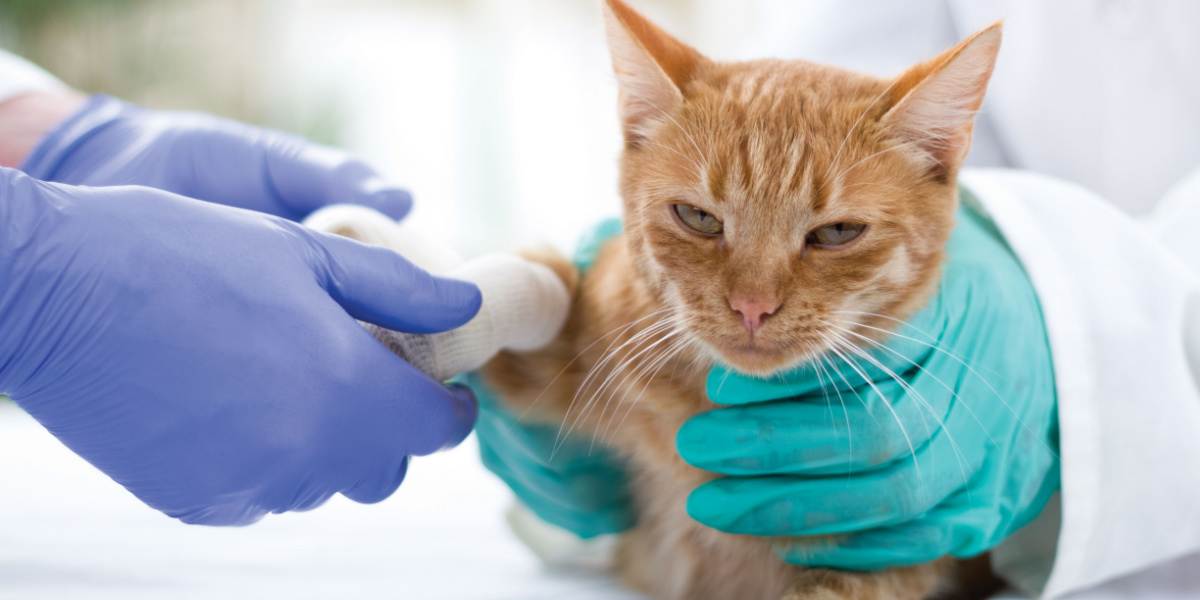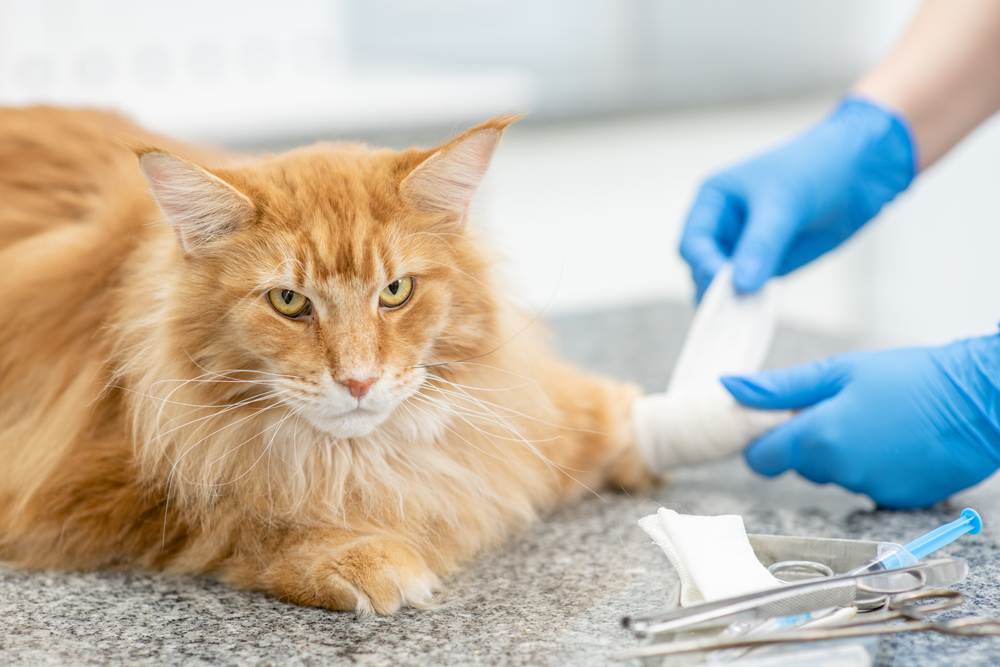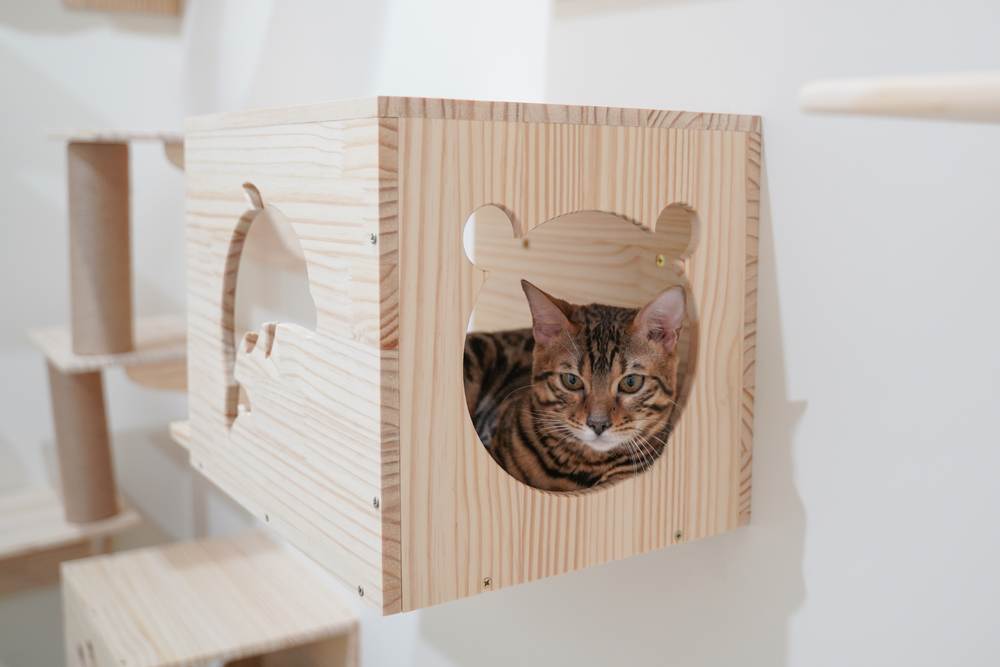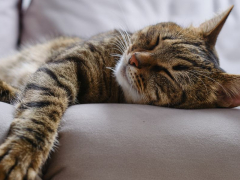
Depending on what part of the world you live in, snake bites can be a real threat to our pet cats. Cats that have outdoor access are at risk of encountering snakes and getting bitten.
The bite itself can cause irritation and infection but what about the venom? Are cats immune to snake venom? We’ll discuss everything that you need to know now.
Cats are not immune to snake bite venom, although they have a higher survival rate than dogs. If a cat has been bitten by a snake, it is vital that they receive emergency veterinary care. Cats that go outdoors and live in areas where snakes inhabit are always at risk of sustaining a snake bite.Key Takeaways
Are Cats Resistant to Snake Venom?
To put it simply, no, cats are not immune to snake venom. Snake venom can cause serious health issues for cats. Venom that contains a hemotoxin (affecting blood) or a neurotoxin (affecting the central nervous system) can be life-threatening if not treated quickly.
Even though cats aren’t immune to snake venom, they are more resistant to it than dogs are. In recent research done by the University of Queensland, cats were found to be twice as likely to survive a snakebite than dogs.
Researchers found that in both, a condition called ‘venom-induced consumptive coagulopathy’ caused by snake venom developed faster in dogs. This condition causes a failure of blood clotting, causing the animal to bleed to death. Dogs lost the ability to clot blood sooner than cats and therefore had a higher chance of death.
Another factor that also contributed was the location of the bite. Cats generally paw at the snake, the way they would when hunting or playing with a toy. For this reason, snake bites in cats are commonly found on the front legs.
On the other hand, dogs often sniff at snakes and get bitten on the nose or face. These areas on the dog have a very good blood supply, allowing the venom to get into the bloodstream fast.
When injured, dogs tend to be very active, while cats tend to hide and stay still. Remaining still slows the spread of venom, thus increasing the chance of survival.
Also Read: 11 Signs That You Need to Get Your Cat To the Emergency Room
How Does Snake Venom Affect Cats?
Snake venom can have various effects on cats, encompassing both local and systemic manifestations. Locally, the venom can cause swelling and pain around the bite site. Systemically, cats may exhibit symptoms such as lethargy, difficulty breathing, vomiting, diarrhea, and an increased heart rate.
In more severe cases, certain snake venoms can lead to neurological issues or paralysis. Additionally, organ damage, particularly to the kidneys and liver, can occur. The severity of these symptoms depends on factors like the type of snake, the amount of venom injected, and the cat’s size and health.
Also Read: What To Do If Your Cat Is Stung By A Scorpion
Signs of a Snake Bite

For natural hunters like cats, snakes make for a tempting target.
As cats are hunters, they often view snakes as prey and try to catch them. Unfortunately, this may result in a snake bite. Cats often get bitten on their front legs and they may get bitten more than once. If your cat disappears outdoors for hours on end, it may be difficult to spot a snake bite early. By the time cats come home, the snake bite may have been there for some time.
Signs that you may notice with a snake bite include;
- Limping
- Swollen leg
- Bite marks
If the snake that bit your cat was venomous, you may see signs of toxicity. This depends on whether the venom injected a hematotoxin or neurotoxin. Signs of a venomous snakebite include;
- Slow or rapid breathing
- Bleeding from the bite wound
- Discoloration of tissue
- Vomiting
- Diarrhea
- Weakness
- Pale or blue color to gums
- Dilated pupils
- Lethargy/sedation
- Paralysis
- Twitching
Also Read: 10 Subtle Signs Your Cat May Be Sick
Treatment of a Snake Bite in a Cat

If you suspect your cat was bitten by a snake, seek veterinary care immediately.
If you think your cat has been bitten by a snake, you need to call your veterinary hospital as soon as possible. It’s a matter of urgency to get them veterinary treatment. Don’t try to administer any home remedies, such as applying a tourniquet, as this can severely damage tissue in the leg.
The only thing that you can do is get to your emergency vet and try to keep the bite wound below the level of the heart. This can delay the spread of venom throughout the body.
Your vet will examine your cat and any bite wound that they have. If you know what type of snake bit your cat tell your vet. This may help with treatment and determining if the bite may have contained venom. The vet may need to give your cat antivenin depending on the species of snake that bit your cat, as well as intravenous fluids.
If your cat is having difficulty breathing, the vet will give them oxygen. They may run blood tests including clotting times to check for any issues with your cat’s blood system. Your cat’s wound will be cleaned and monitored for infection.
Also Read: Cat Bloodwork (Different Types of Tests, Health Conditions And Costs)
How To Prevent Snake Bites in the Future

Indoor cats suffer fare fewer injuries than outdoor cats, including snake bite wounds.
The only way to completely prevent snake bites in the future is to keep your cat indoors. Cats that roam outdoors will always be at risk of snake bites if you live in an area with snakes. Keeping grass short around your home will help to prevent snakes from hiding in the long grass.
To Summarize
Snake bites are common in areas with warmer climates and snakes are often found in the long grass. Cats being the natural hunters that they are often try to hunt snakes. This may result in a snake bite which can cause serious issues if it was from a venomous snake. Therefore, cats are not immune to snake venom but they can have a better outcome compared to dogs.
Cats need emergency veterinary care which may result in a good outcome if treatment is started quickly. Antivenin, intravenous fluids, and supportive medication may be given at the veterinary clinic to treat your cat’s snake bite. Recovery is usually within 1-2 days if treatment is given in time. The only way to prevent snake bites is by keeping your cats indoors if possible.
Also Read: 10 Ways To Keep Cats Entertained In A Small Apartment
Frequently Asked Questions
Can a cat survive a snake bite?
Yes, cats can survive a snake bite if veterinary treatment is sought as soon as possible after the bite. Cats are twice as likely to survive when compared to dogs.
Are cats immune to snake venom?
No, cats are not immune to snake bite venom. Venom can prove fatal for cats if they don’t get treatment quickly after a bite.
How long can a cat live after being bitten by a snake?
Cats can live for 15-24 hours after being bitten by a snake. This depends on the amount of venom in the bite, the type of snake and how many times they were bitten.
Can a cat survive a snake bite without anti-venom?
It’s unlikely that cats that receive no treatment after a snake bite will survive. They need immediate treatment with anti-venom (also called "antivenin") and supportive care. If they don’t receive treatment, bites will often prove fatal.







